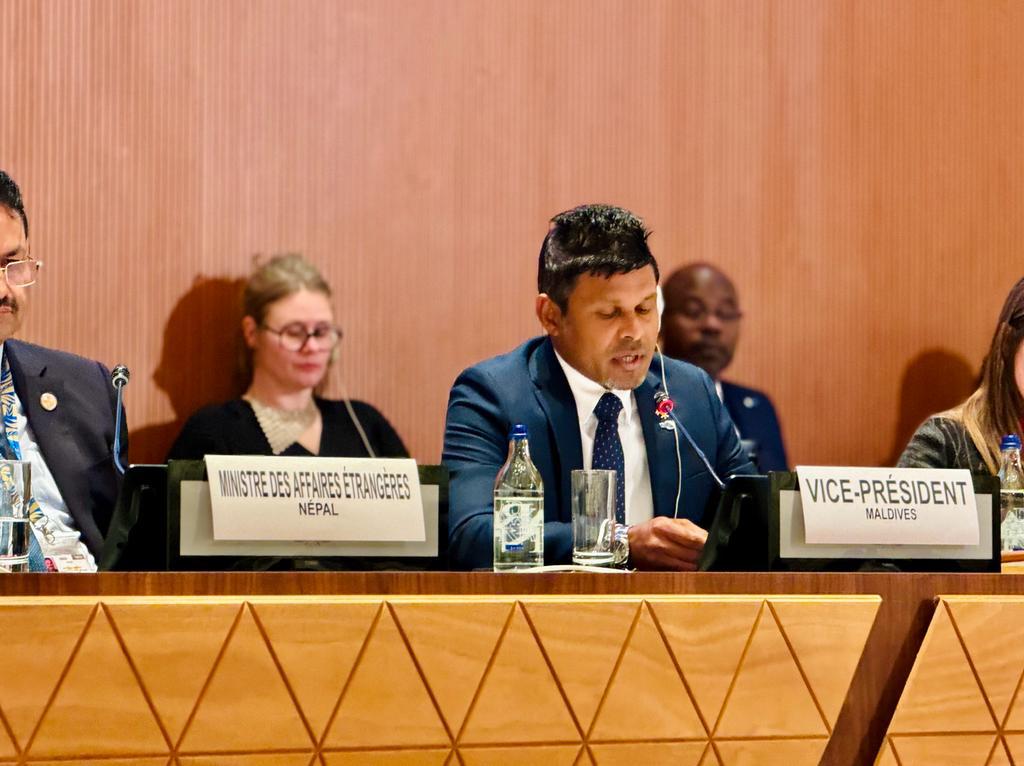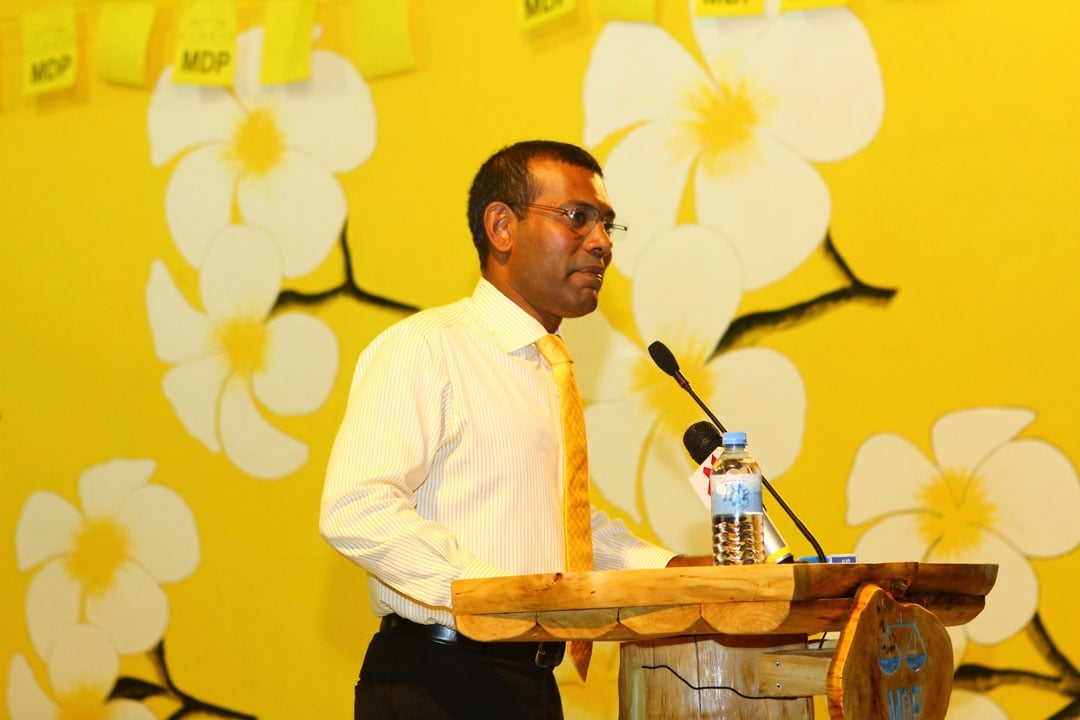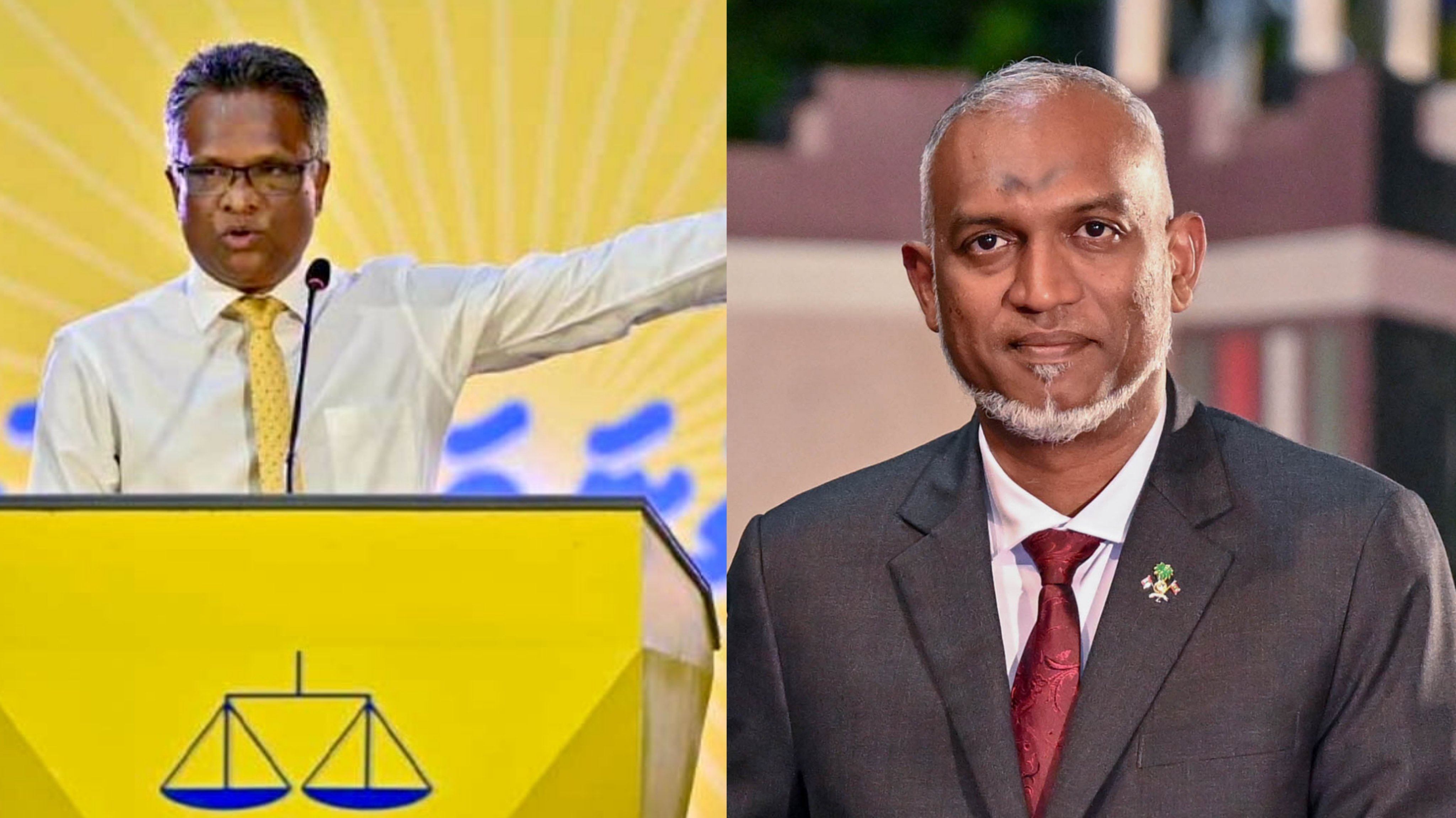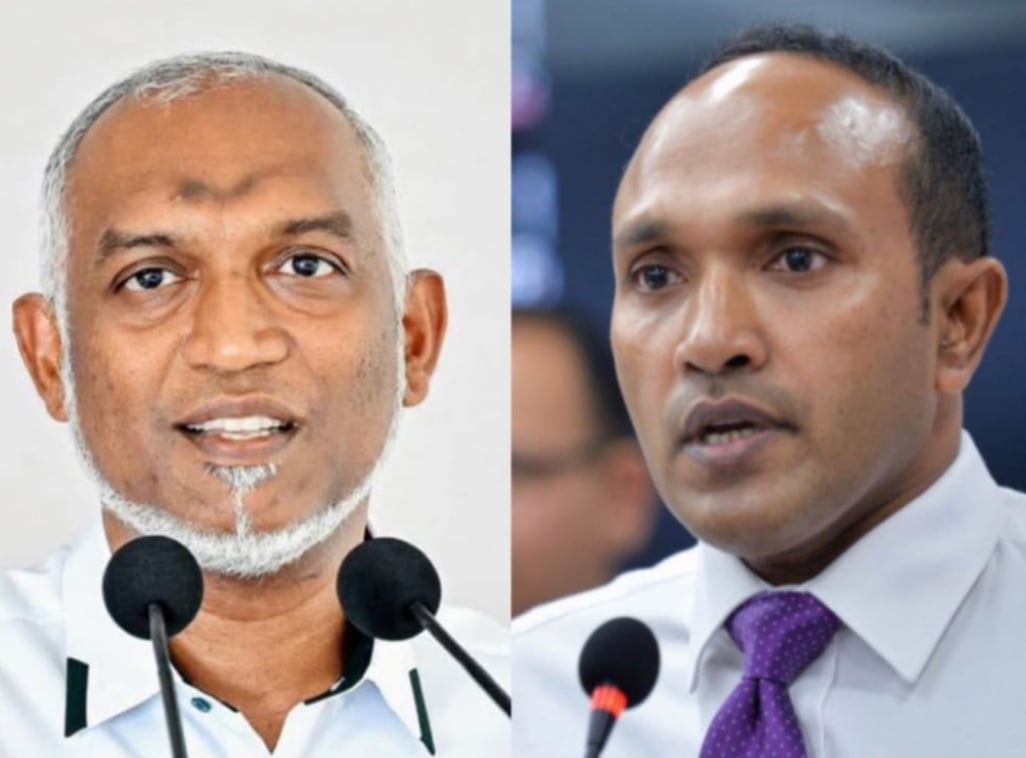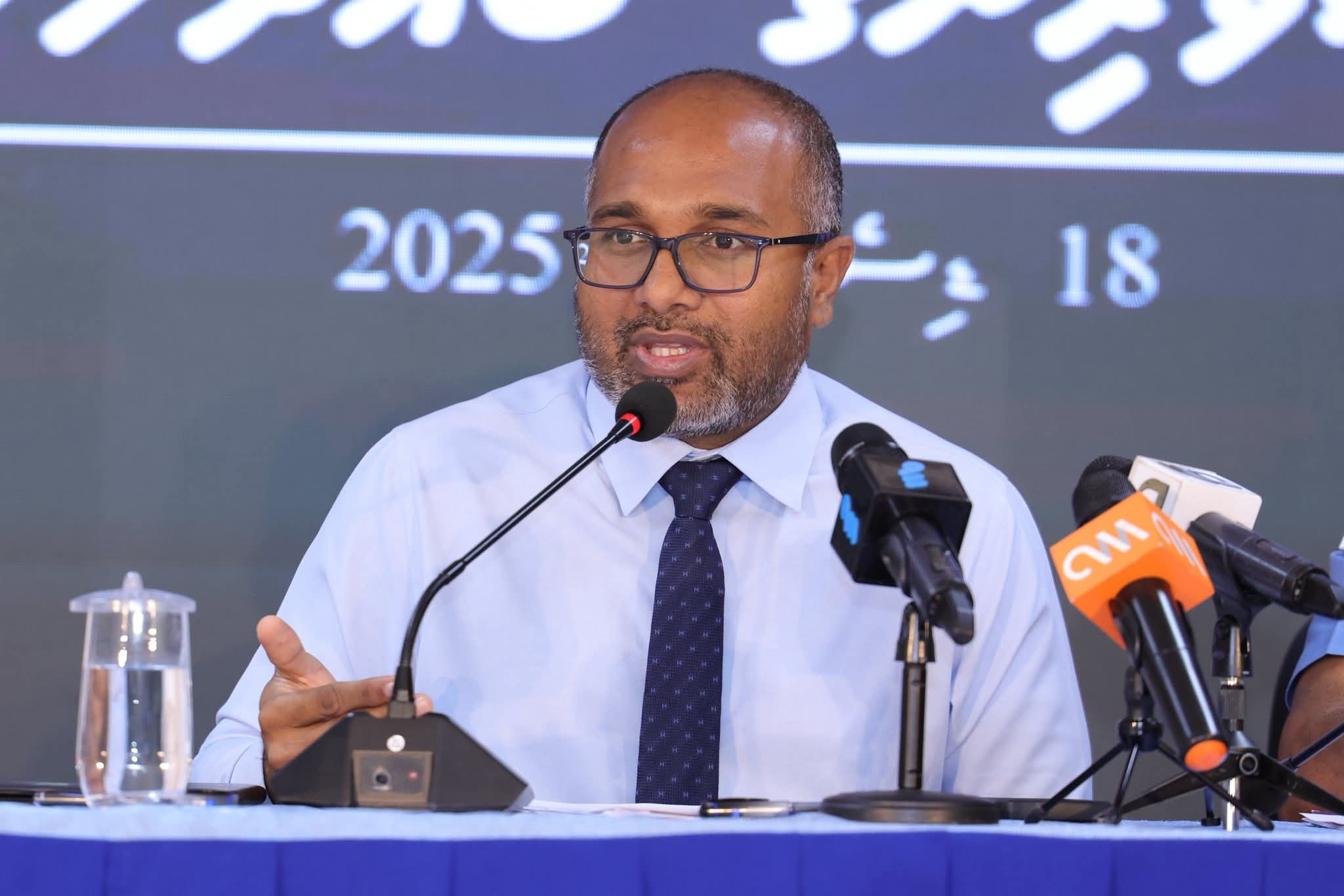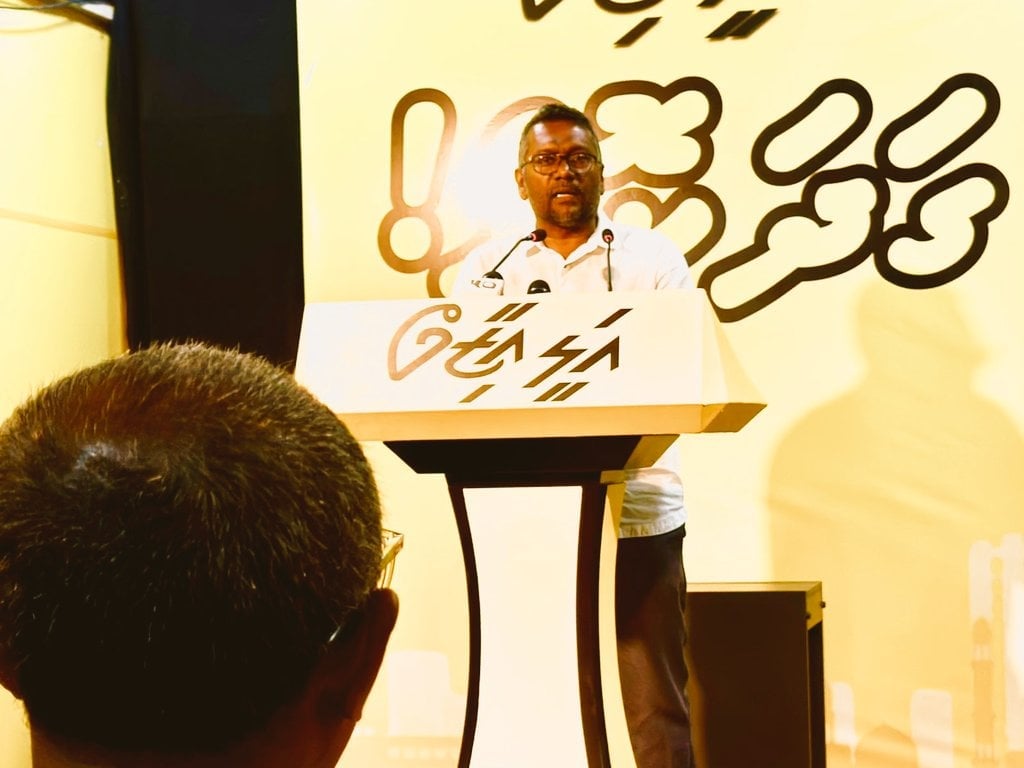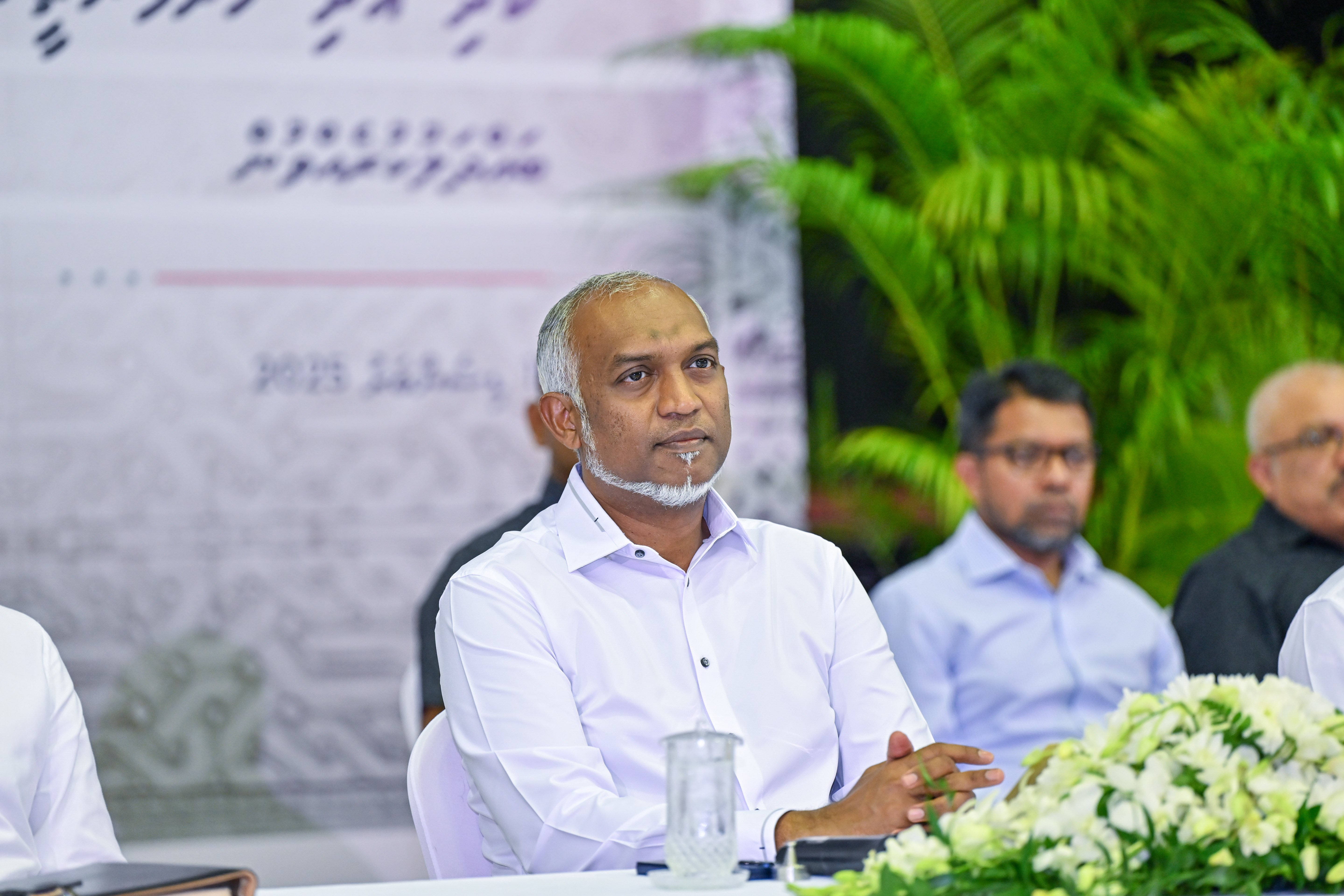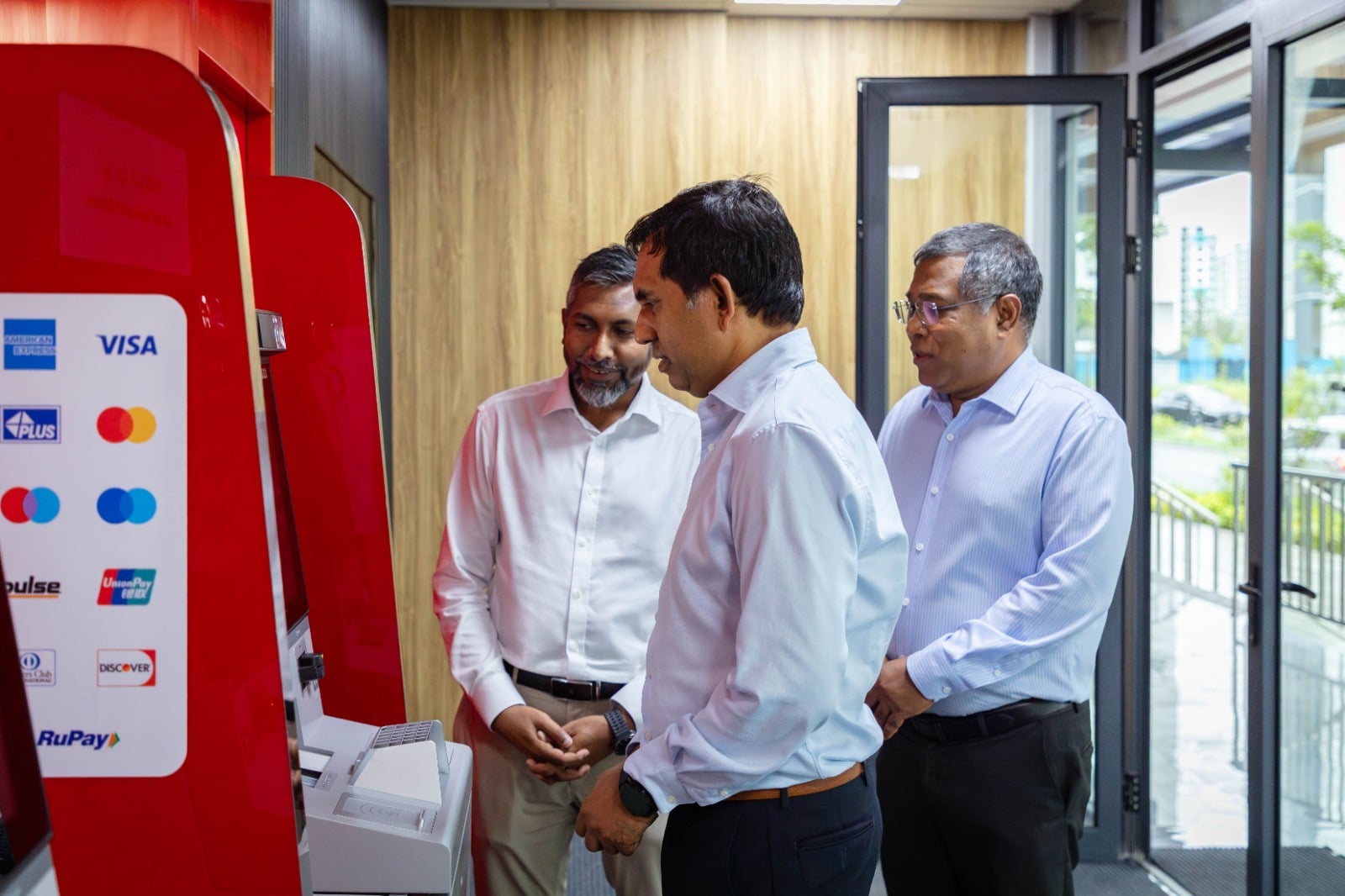On Tuesday, Vice President Hussain Mohamed Latheef reiterated the urgent need for global solidarity in addressing environmental challenges for everyone everywhere. He made these remarks at the Roundtable on the Future of Human Rights, Environment, and Climate of the Human Rights 75 high-level event in Geneva, Switzerland.
Speaking on the topic of adaptation of economic models and resource mobilization, the Vice President stated that the realization of the right to life is impeded by climate change and that at the core of the climate crisis lies a humanitarian issue. The Vice President stated that the widespread unawareness of the close connection between environmental protection and human rights was a major challenge. He highlighted the necessity of using solid facts to close this knowledge gap, underscoring that promoting policy changes was necessary to incorporate human rights issues into financial decisions.
The Vice President further stated that a multifaceted strategy is needed to harmonize economic and business models by taking that includes structural adjustments, cultural shifts, and international cooperation. The Vice President noted adopting more "environmentally friendly" methods as a sign of changing mindsets in contemporary business endeavors. He emphasized the significance of structural modifications, encompassing adjustments to legislative frameworks and procedures, adding that the Maldives recognizes every citizen’s right to a healthy and ecologically balanced environment and urged that multilateral cooperation is essential for robust climate action. He also stressed the need to harmonize ecologically sound practices at the global level.
The roundtable is one of four high-level roundtables organized by the UN High Commissioner for Human Rights during the high-level event to commemorate the 75th anniversary of the adoption of the Universal Declaration of Human Rights.
Speaking on the topic of adaptation of economic models and resource mobilization, the Vice President stated that the realization of the right to life is impeded by climate change and that at the core of the climate crisis lies a humanitarian issue. The Vice President stated that the widespread unawareness of the close connection between environmental protection and human rights was a major challenge. He highlighted the necessity of using solid facts to close this knowledge gap, underscoring that promoting policy changes was necessary to incorporate human rights issues into financial decisions.
The Vice President further stated that a multifaceted strategy is needed to harmonize economic and business models by taking that includes structural adjustments, cultural shifts, and international cooperation. The Vice President noted adopting more "environmentally friendly" methods as a sign of changing mindsets in contemporary business endeavors. He emphasized the significance of structural modifications, encompassing adjustments to legislative frameworks and procedures, adding that the Maldives recognizes every citizen’s right to a healthy and ecologically balanced environment and urged that multilateral cooperation is essential for robust climate action. He also stressed the need to harmonize ecologically sound practices at the global level.
The roundtable is one of four high-level roundtables organized by the UN High Commissioner for Human Rights during the high-level event to commemorate the 75th anniversary of the adoption of the Universal Declaration of Human Rights.





